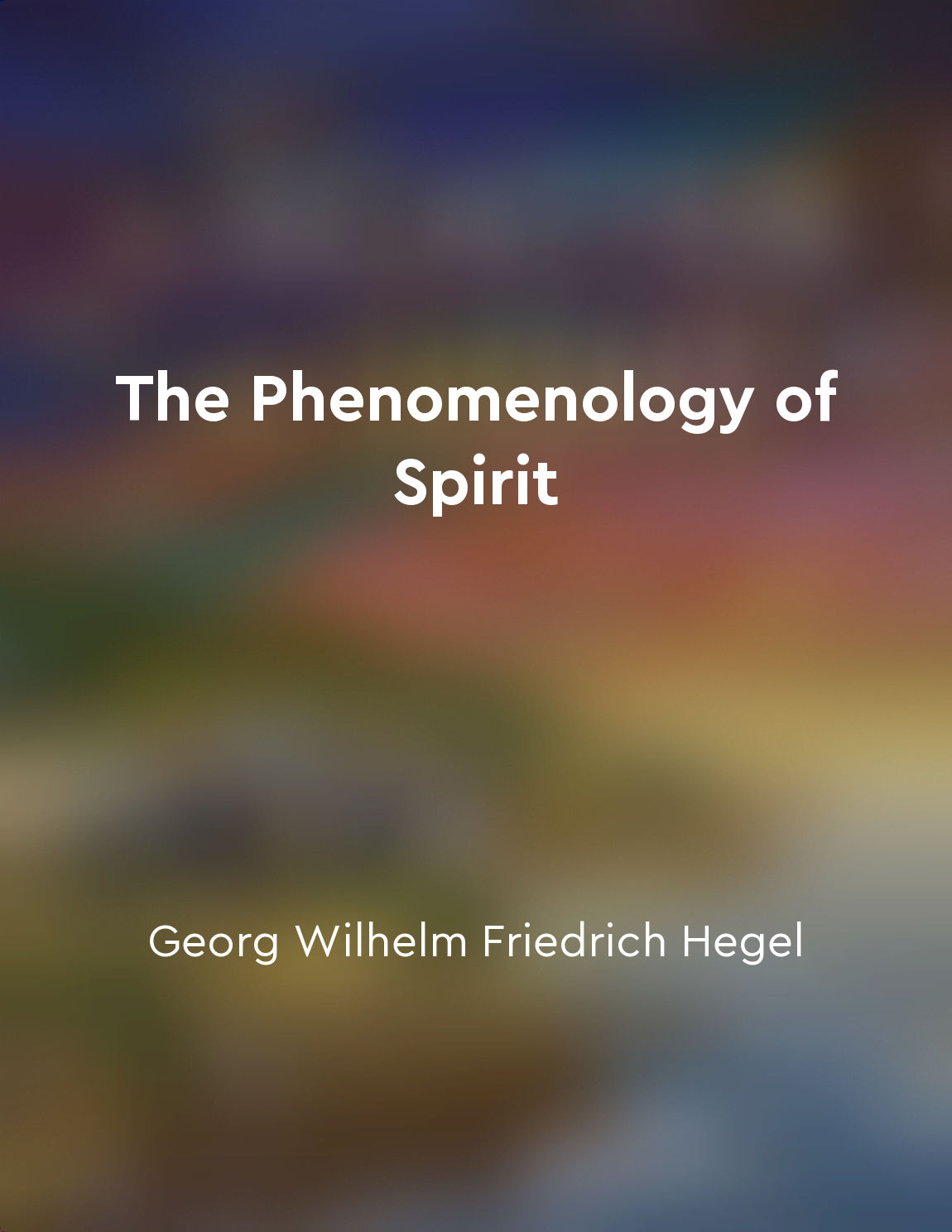Transcendental ego is the source of all meaning from "summary" of Ideas for a Pure Phenomenology and Phenomenological Philosophy by Edmund Husserl
The concept of the transcendental ego as the source of all meaning lies at the core of phenomenology. Husserl's exploration of consciousness and intentionality leads him to posit that the transcendental ego is the foundation upon which all meaning is constructed. By examining the structures of consciousness, Husserl uncovers how the transcendental ego provides the framework through which we experience the world. Consciousness, for Husserl, is always intentional - it is directed towards objects in the world. This intentionality reveals that meaning is not inherent in objects themselves, but rather is constituted through the acts of consciousness. The transcendental ego, as the unifying self-awareness that underpins all conscious experience, is what gives coherence and significance to our perceptions. Through the transcendental ego, we are able to make sense of the world around us, organizing our experiences into a meaningful whole. It is through this self-awareness that we are able to attribute value and significance to the objects we encounter. Without the transcendental ego, there would be no basis for understanding or interpreting the world - meaning would be elusive and incomprehensible. Husserl's emphasis on the transcendental ego as the source of all meaning underscores the importance of self-awareness in our understanding of the world. By recognizing the role of the transcendental ego in shaping our experiences, we gain insight into the ways in which meaning is constructed and interpreted. Through the transcendental ego, we are able to grasp the significance of our interactions with the world, revealing the depth and complexity of our conscious experiences.Similar Posts

Acknowledging privilege and responsibility
In this world, there are those who are born with certain advantages that others do not have. It could be wealth, education, or ...
The practice of meditation can alter our relationship to our thoughts
Meditation has the power to transform our relationship with our thoughts. When we sit down to meditate, we are instructed to si...
Interdependence and community foster meaning
Eagleton argues that human beings find meaning not in isolation, but in their relationships with others. This idea is rooted in...

Recognition as a fundamental concept
Recognition is a fundamental concept that underlies the entire process of self-consciousness. It is through recognition that we...
Disease can be caused by both physical and psychological factors
Disease is a complex and multifaceted phenomenon that can be caused by a combination of physical and psychological factors. The...
It is a guide in navigating the complexities of existence
The concept presented can be seen as a guiding light amidst the intricate web of existence. It serves as a roadmap for individu...
Heidegger's concept of "care" involves taking responsibility for both oneself and others
Heidegger's concept of "care" is not just about looking after oneself. It involves a sense of responsibility that extends to ot...
Existentialists grapple with the meaning of life in a godless universe
Existentialists are concerned with the fundamental question of what gives life meaning when there is no higher power or externa...
